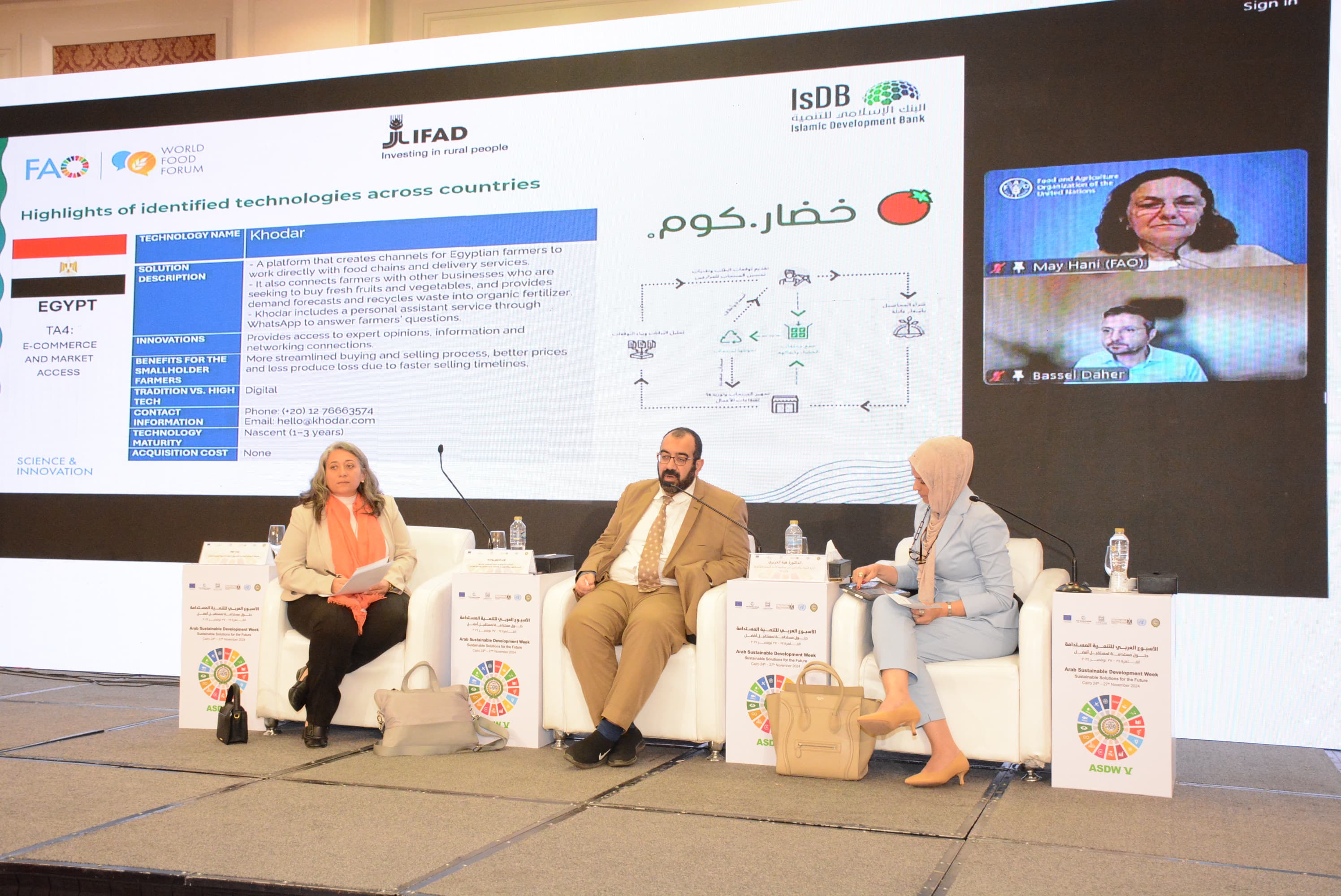FAO, IFAD and ISDB supports smallholder farmers in accessing adaptive technologies
Commemorating the fifth edition of the Arab Sustainable Development Week

©Ahmed Elaraby
The Food and Agriculture Organization of the United Nations (FAO), the Islamic Development Bank (IsDB) and the International Fund for Agricultural Development (IFAD) have highlighted their support to smallholder farmers in accessing adaptive technologies to bridge the gap between global innovation and local application, enhancing resilience across diverse agricultural landscapes.
This came during a session held by the three organizations titled “Empowering Smallholder Farmers: Mapping climate-smart technologies and enabling evidence-based technology investments”. This session is under the umbrella of the fifth edition of the Arab Sustainable Development Week (ASDW-V) taking place in Cairo from 24 to 27 November 2024.
The theme of this year’s ASDW-V is “Sustainable Solutions for Better Future” which aims to find innovative solutions to accelerate the implementation of the 2030 Agenda in the Arab region as well as to generate actionable strategies and foster partnerships that will drive sustainable development in the Arab world and yield positive impacts on the lives of the people of the region.
“Comprehensive mapping of climate-smart technologies carried out through this tripartite cooperation has underscored the role of technology as a critical enabler of innovation across six thematic areas (postharvest, water management, pest control and crop management, e-commerce and market access, fintech, and green energy for on-farm operations). While the two-level assessment of technologies carried out remotely, FAO is eager to further this work with closer engagement with farmers and stakeholders on the third-level assessment to validate the findings and fine-tune recommendations in interested countries,” highlighted May Hani, FAO Senior Programme Officer, Rural Transformation and Inclusive Value Chains.
"Smallholder farmers, who produce around 60% of agricultural yield in the Arab region, are often the most vulnerable to the impacts of climate change. By mapping affordable
and transferrable climate-smart technologies for smallholder farmers, we support smallholders in accessing adaptive technologies that increase their resilience, boost their productivity, and improve their livelihoods while minimizing environmental impact,” said Zeinab Awad, Country Programme Coordinator
Near East, North Africa Multi-Country Office, IFAD.
The session explored the methodology used to identify viable technologies, showcasing The Green and Climate Smart Technologies Assessment Tool (GC-STAT) role which is an innovative decision support tool to streamline the systematic evaluation and prioritization of technologies for deployment in agricultural investment and development programmes. It also incorporates a multi-level assessment process and allows for adaptable weighing of evaluation criteria depending on the context and reflecting the diverse needs and priorities of different stakeholders.
“Transforming this excel-based GC-STAT into a digital public good will make it widely accessible for application in different contexts. Capacity development at various levels, on the use of the tool, carrying out the assessments, but also the use of the technologies, are integral to such efforts,” said Louai Yousif, Lead Technology Deployment Specialist, IsDB.
A large number of stakeholders attended the event, including government officials, international, regional organizations, civil society, the private sector, and youth, in addition to academia, and research centers.
